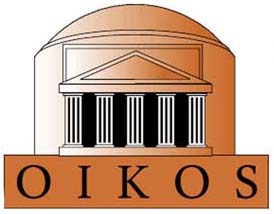This course offers an intensive introduction into Latin epigraphy from the Republican period up until Late Antiquity and is aimed at the acquisition and application of practical research skills in epigraphic research. Taking the role of inscriptions in communicative strategies of those who commissioned them as a starting point, the course focuses on the materiality of their supports and the spatial contexts of their original settings as much as on the texts of the inscriptions themselves. Given the variety of epigraphic texts, the approach is necessarily interdisciplinary paying attention to philological, socio-linguistic, literary, and legal aspects of inscriptions. In addition, theoretical and methodological aspects of epigraphic research will be explicitly addressed. The course finally hopes to provide insight in the research potential of epigraphic sources by exploring aspects of the Roman world which are uniquely accessible through inscriptions such as Roman burial customs and commemorative practices, family relationships and Roman laws of succession, language and social class, migration and cultural identity, patronage and professional associations, the administration of the Roman empire, and content and organization of public and private cults.
Lecturers
Dr. Ton Derks (VU Amsterdam, Archaeology), prof. dr. Caroline Kroon (University of Amsterdam, Classics), prof. dr. Daniëlle Slootjes (University of Amsterdam, Ancient History)
Course set up and assessment
The course comprises lectures, and museum and site visits alternated with individual study and research (under supervision) in the library of the KNIR. As an individual task each student will be assigned one or more texts (on stone or bronze) kept in a museum or preserved in situ on an archaeological site in Rome or Ostia. By working on your assignment you will learn to read an epigraphic text, to produce a transcription and translation, as well as to write a short epigraphic commentary which discusses the particularities of the inscription against a backdrop of comparable texts and monuments. The course will be concluded by presentations and discussions of the results from the assignments. Comments from fellow students as well as from the teaching staff need to be taken into account in the final written report which the participants are expected to submit no later than three weeks after conclusion of the course.
The intensive part of the course will be in Rome (21-30 March 2025), but the module will start with four introductory seminars in Amsterdam (7, 21 and 28 February, and 7 March 2025), in which you will be made familiar with the history of the discipline, with the most important corpora of Latin inscriptions in print and in digital data bases, as well as with the rules for transcription. We will also discuss the chronological and geographical distribution of inscriptions, review different categories and practise reading skills by reading examples.
Target group and entry requirements
The course is intended for MA students (MA and research MA) as well as PhD students who are at the beginning of their doctorate research. The course can be taken as part of the MA programme at the own university, as part of the OIKOS education programme and/or as part of the Masterlanguage course for classicists (see www.masterlanguage.nl). The target group of the course are students in Classics, Ancient History, Archaeology and Roman Law, but others who take a special interest in Latin epigraphy and meet the entry requirements are invited to apply as well. While no specific knowledge of epigraphy is necessary, participants should at least have knowledge of Latin at the level of the Dutch VWO exam or have completed two courses (10-12 EC) in elementary Latin at university. International students may be admitted to the course provided that they are registered as a student at a Dutch university.
Credits
The study load is the equivalent of 5 ects (140 hours) and comprises eight full days of study in Rome and some extra time for reading course materials in advance of the course as well as for writing up and editing the paper of the individual assignment after the final meeting. In consultation with the teaching staff the study load can be enlarged on an individual basis.
Language
English, unless all students are Dutch
Costs
For all participants free accommodation in Rome will be arranged at the Royal Netherlands Institute in Rome. Entrance to museums and sites which we will visit as part of the course will be free as well. Travel costs to and from Rome as well as local transport, meals, and refreshments are at one’s own expense. Successful completion of the course qualifies for a reimbursement of travel costs up to an amount of 100 euros for students, affiliated in one of our partner universities. There is a good cooking facility in the Royal Netherlands Institute free to use for all participants.
Application and admission
If you are interested in taking this course, please register via the form below. Please do not forget to indicate under “Other specifications” your level of command of Latin: Dutch VWO exam, completed university courses elementary Latin, completed BA Classics, completed MA Classics. To complete your registration you will be asked to upload the study results of the BA programme, your CV and a letter of motivation. All applicants except PhD students are kindly requested to register for the course on the Masterlanguage website as well.
The course can take up to fifteen students. In case more candidates register, a selection will be made whereby students from Classics, research master students of Ancient Studies affiliated with the OIKOS research school, and other students from the six Dutch universities participating in the Netherlands Institute at Rome have priority (in that order). In addition, the motivation letter may be used as a means for selection.
Enrollment deadline
2 December 2024. Please note that the decision of the selection committee is final and no correspondence will be entered into.
More info
secretary@knir.it
This course has been organized in collaboration with











